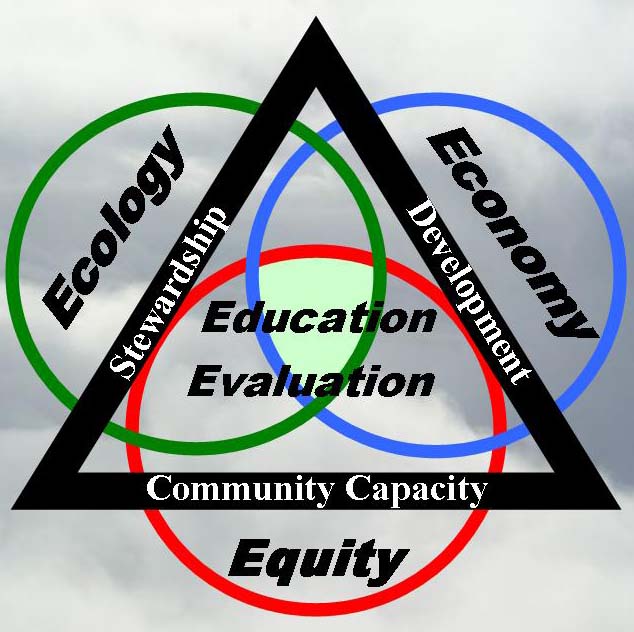| People
wanting to achieve a sustainable lifestyle must rely on the
most informed understanding possible of the environment around
them, commitment and love of home place, and the identification
of long-term economic interests — needs, not wants — for
establishing workable limits within nature’s way. Establishing
limits based upon awareness for interconnections and appreciating
the effectiveness of these limits constitutes the true practice
of a sustainable lifestyle supported by our understanding
of science that Five E's Unlimited promotes.
Simultaneous
to the bioregional
scale emphasis of problem-solving, a new field
is beginning to emerge: the Science and Technology
for Sustainability – or sustainability science – which
integrates the physical, biological, and social sciences
as well as medicine and engineering. Central questions
that Five E's considers in the
evolution of its work in science from a bioregional
approach include:
- How
can the dynamic interactions between nature and
society be better incorporated in emerging models
and conceptualizations that integrate the Earth
system, human development, and sustainability?
- How
are long-term trends in environment and development
reshaping nature-society interactions in ways relevant
to sustainability?
- What
determines the vulnerability or resilience of the
nature-society system in particular kinds of places
and for particular types of ecosystems and human
livelihoods?
- Can
scientifically meaningful "limits" or "boundaries" be
defined that would provide effective warning of
conditions beyond which the nature-society systems
incur a significantly increased risk of serious
degradation?
- How
can today's relatively independent activities of
research planning, observation, assessment, and
decision support be better integrated into systems
for adaptive management and societal learning,
including the advancement of Citizen Science?
As
scientific progress proceeds to build a greater capacity
in sustainability science, the question of how better
to integrate this progress with actual decision-making
by practitioners remains paramount. Five E's Unlimited the concept of Citizen
Science that will improve our understanding of
the impediments to increased integration between science
and assessment, on one hand, and policy and practice
on the other, in order to begin to demonstrate means
to enhance their integration. Case studies can examine
successes and failures in past and ongoing efforts
to achieve more effective interaction between the worlds
of science and practice. What (if any) generalizations
about “what works” in the design of effective
knowledge systems can be carried over from place to
place, or sector to sector, or problem to problem?
This can best be determined by designing and carrying
out sustainability science on a bioregional
scale.
|


